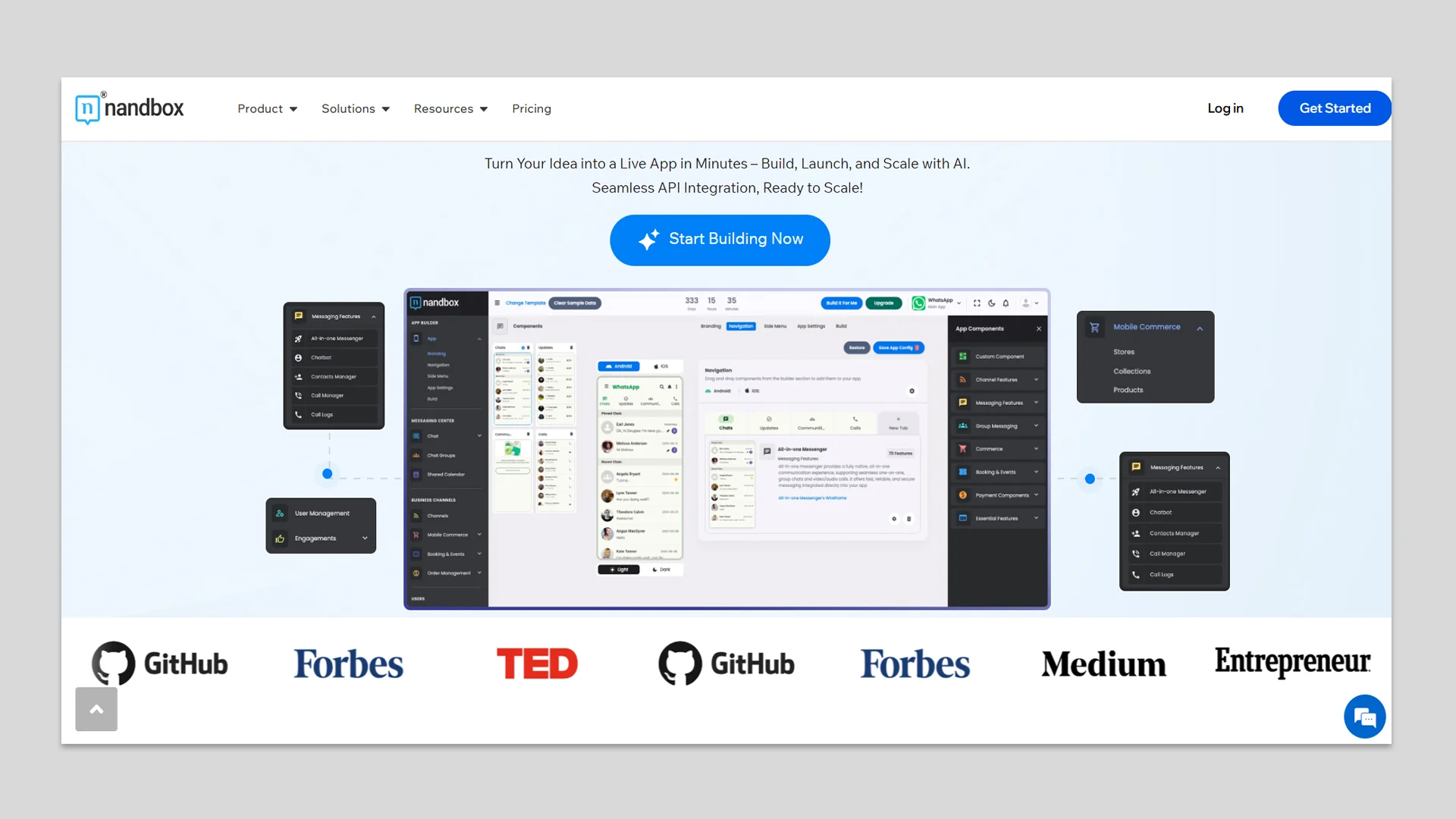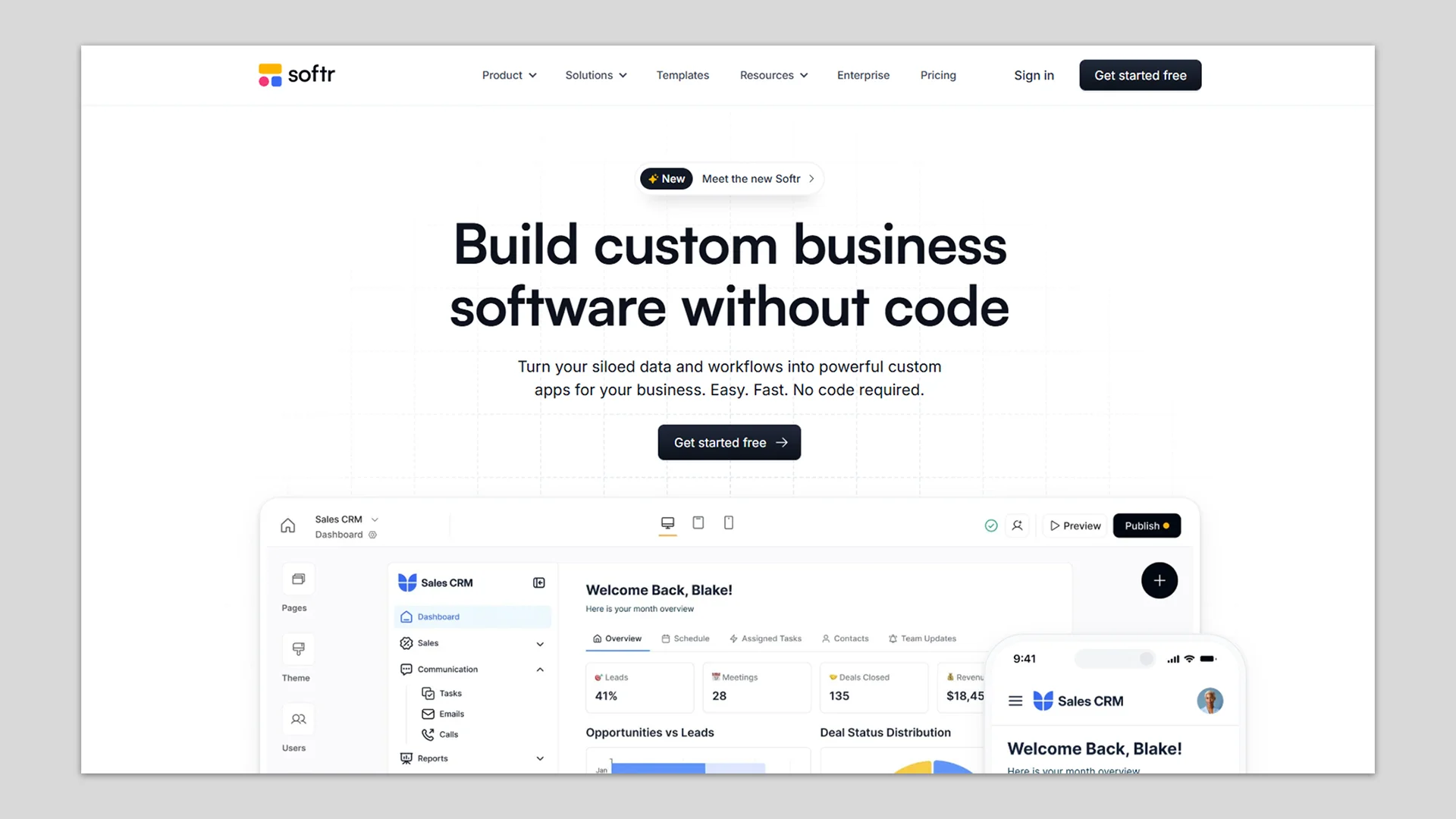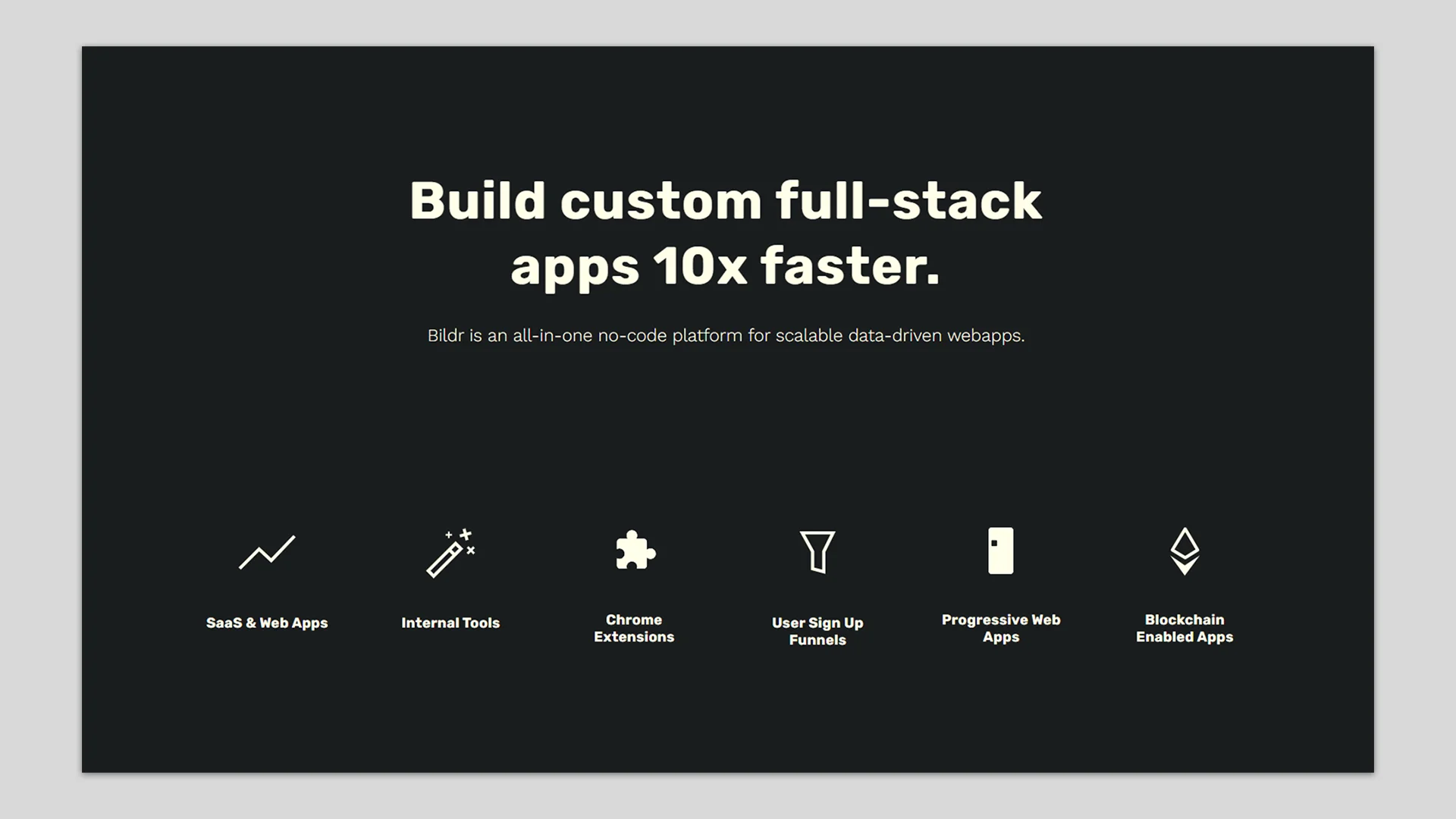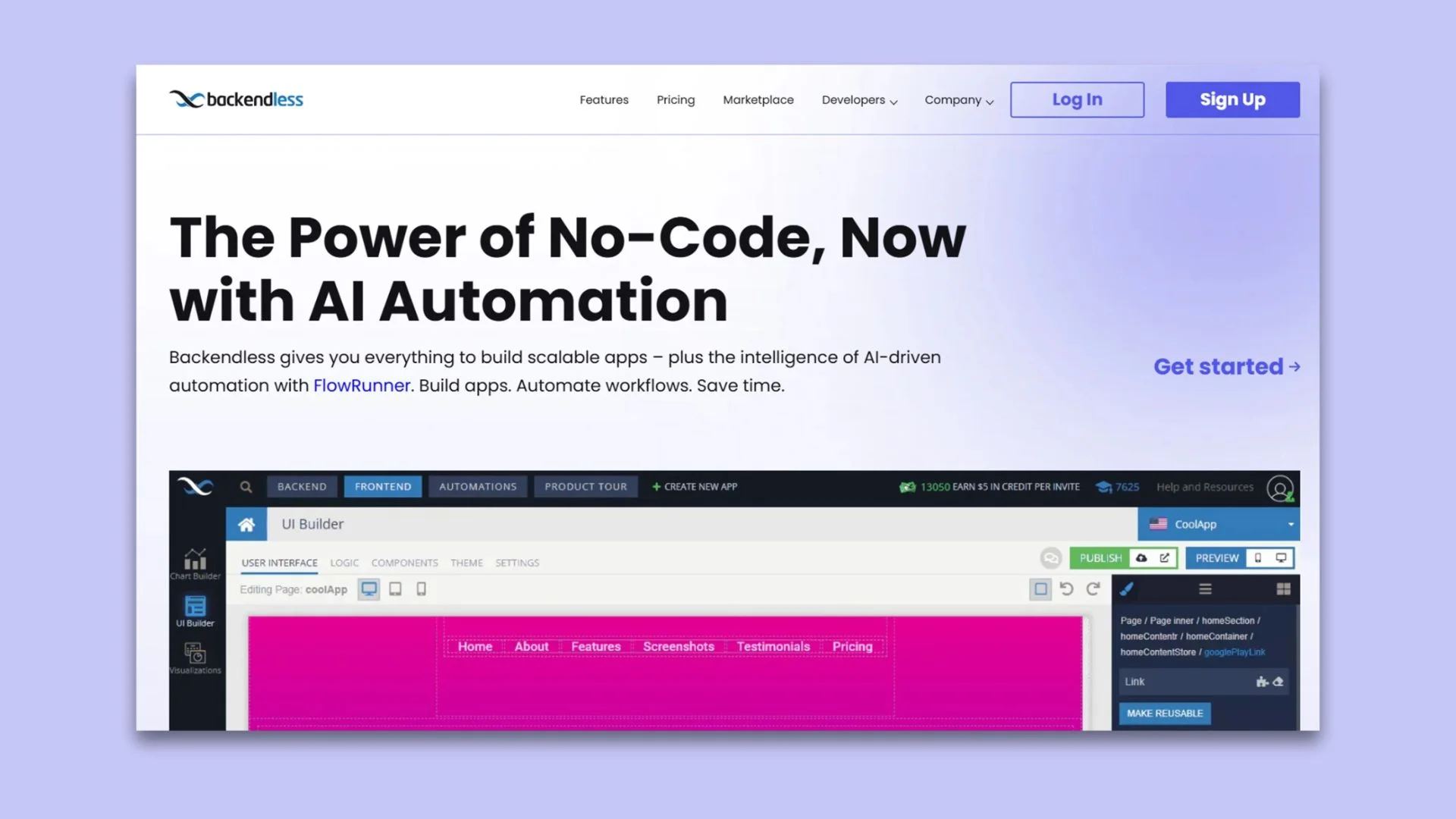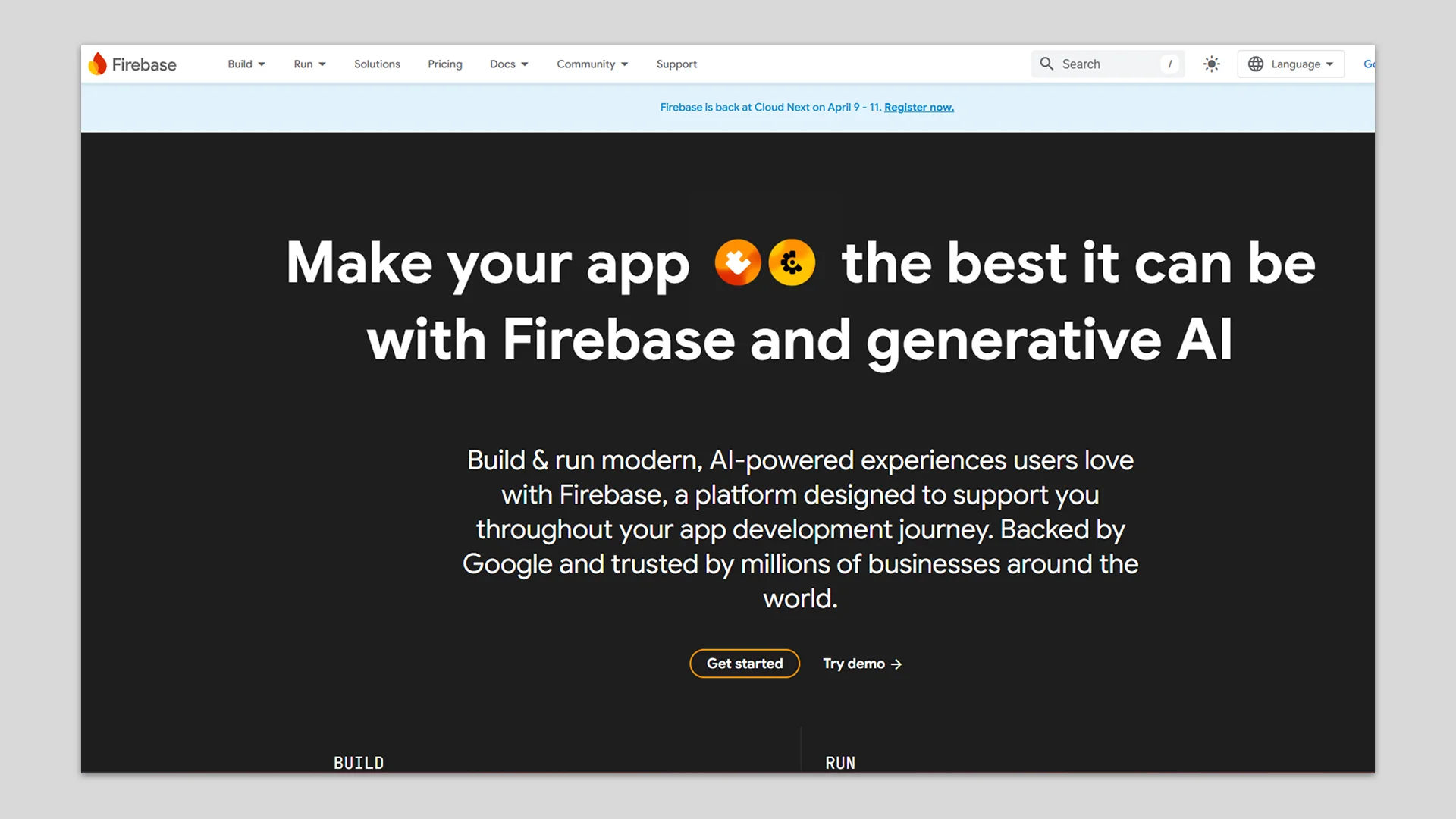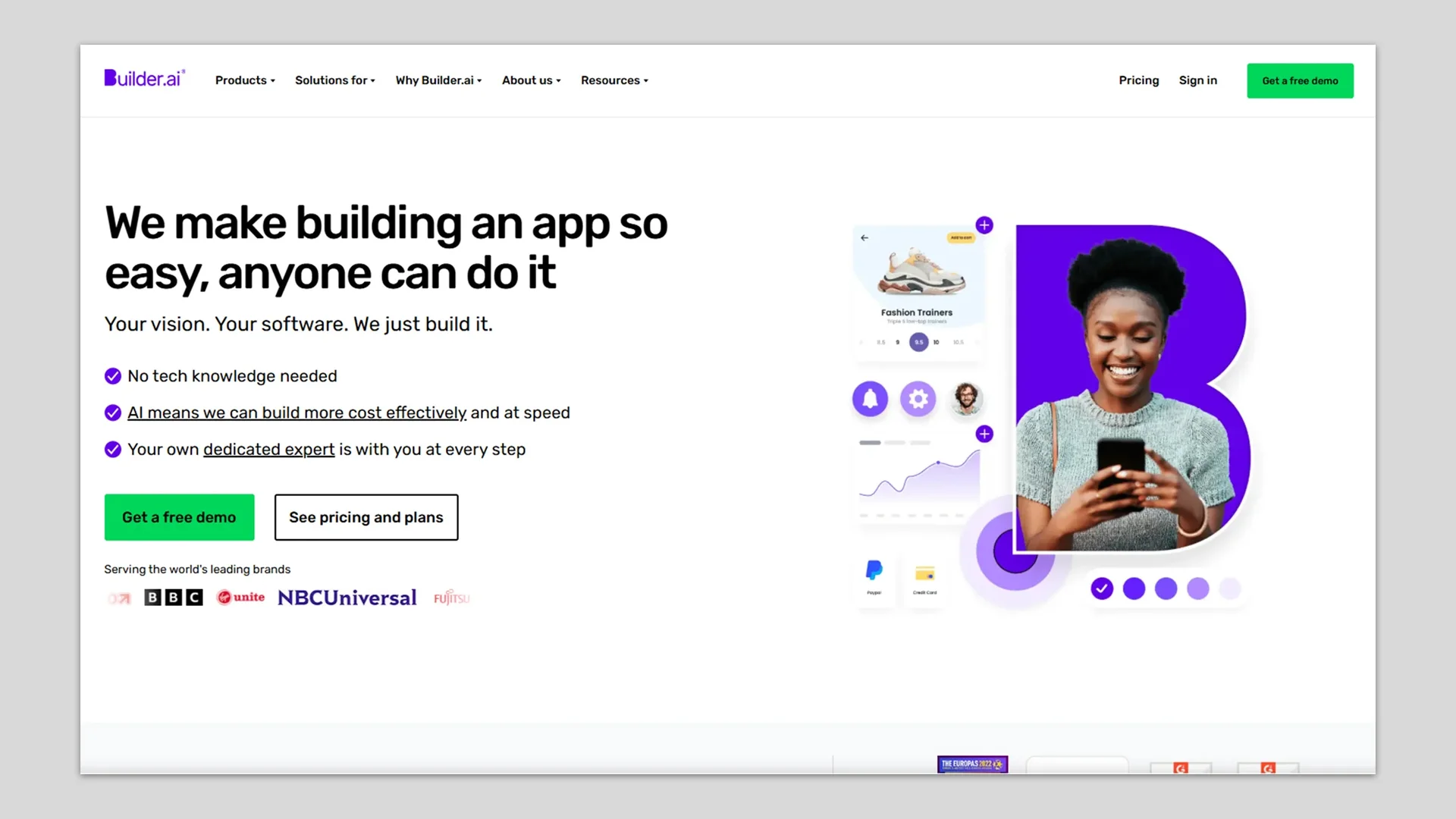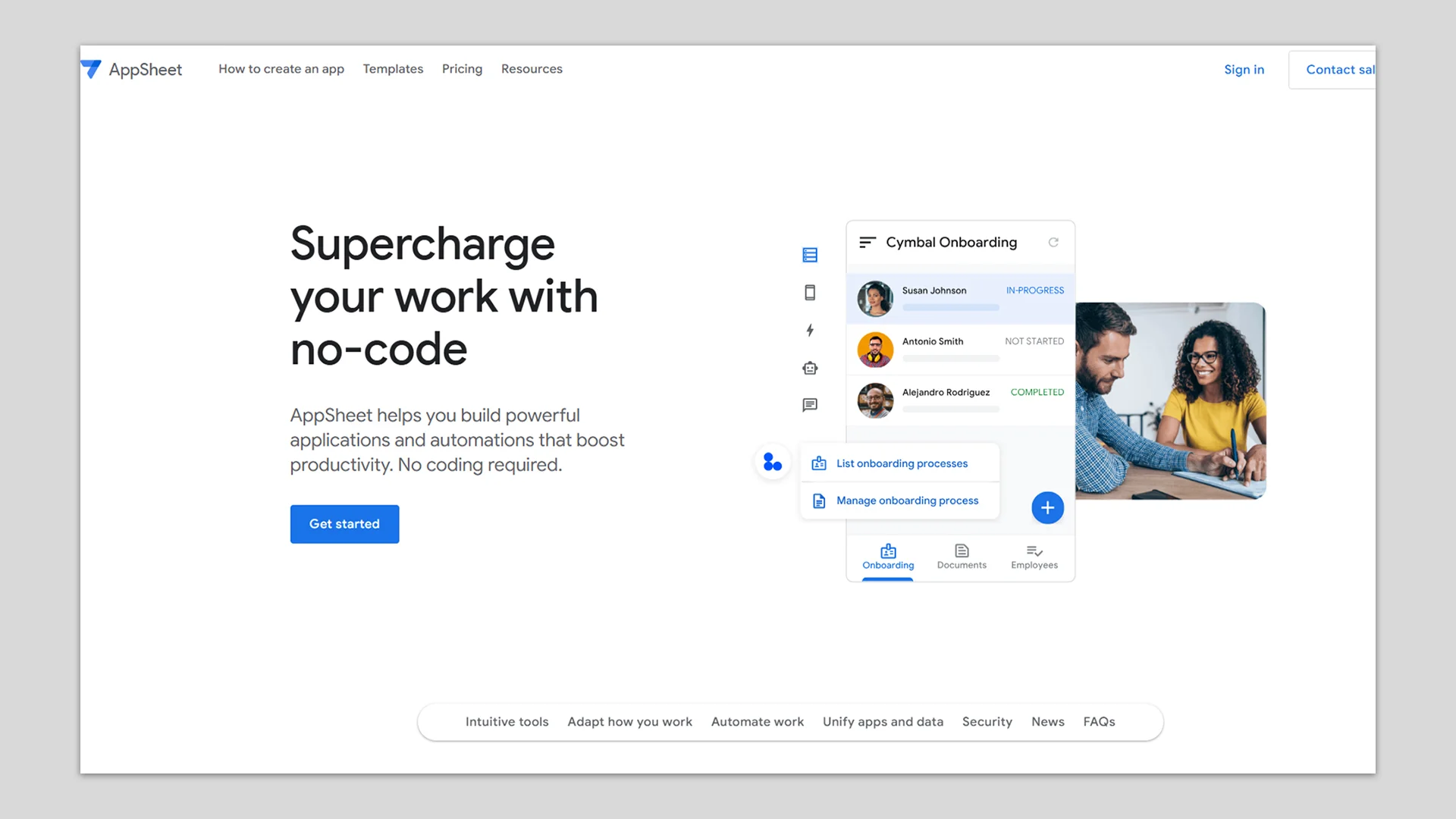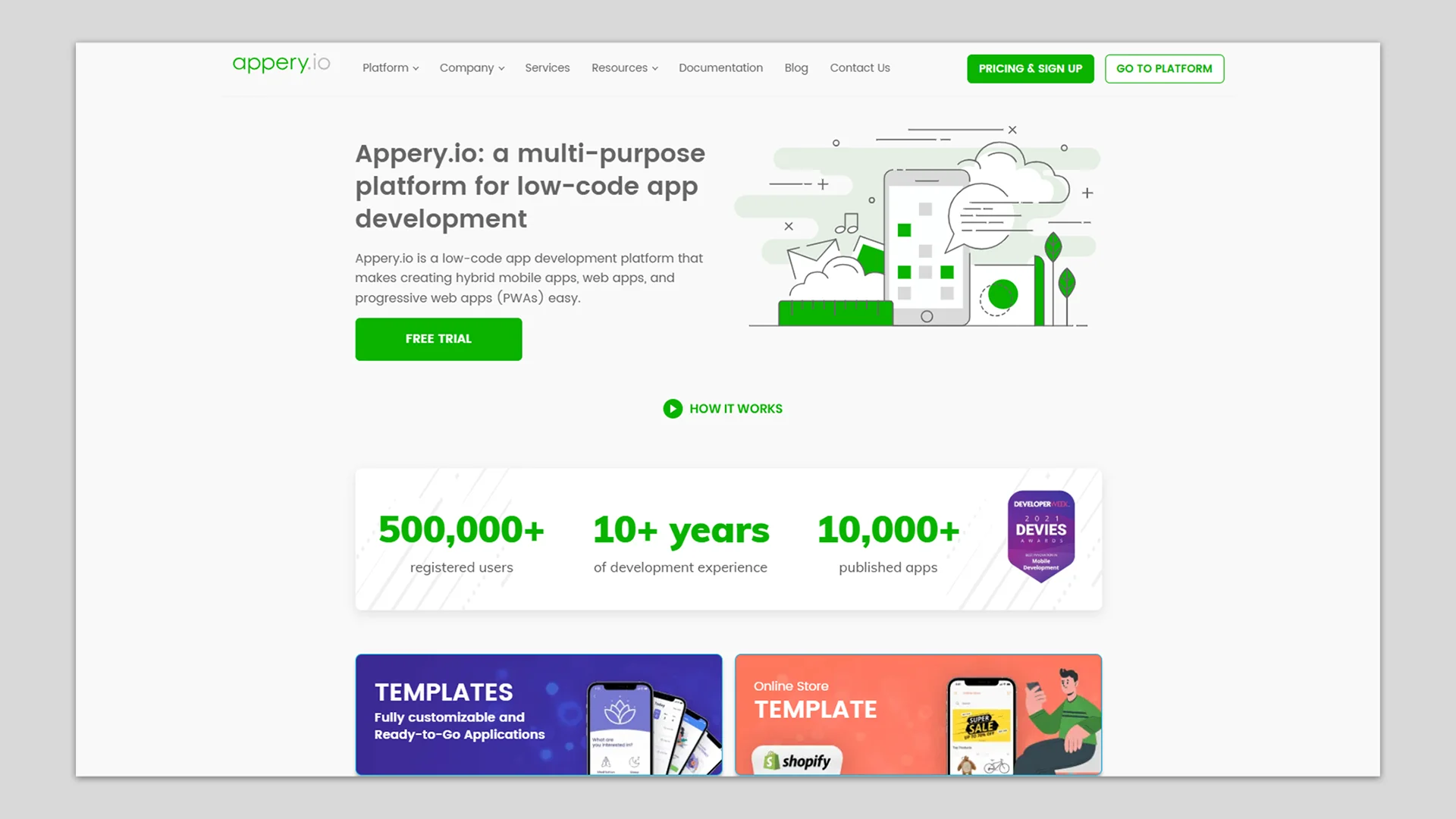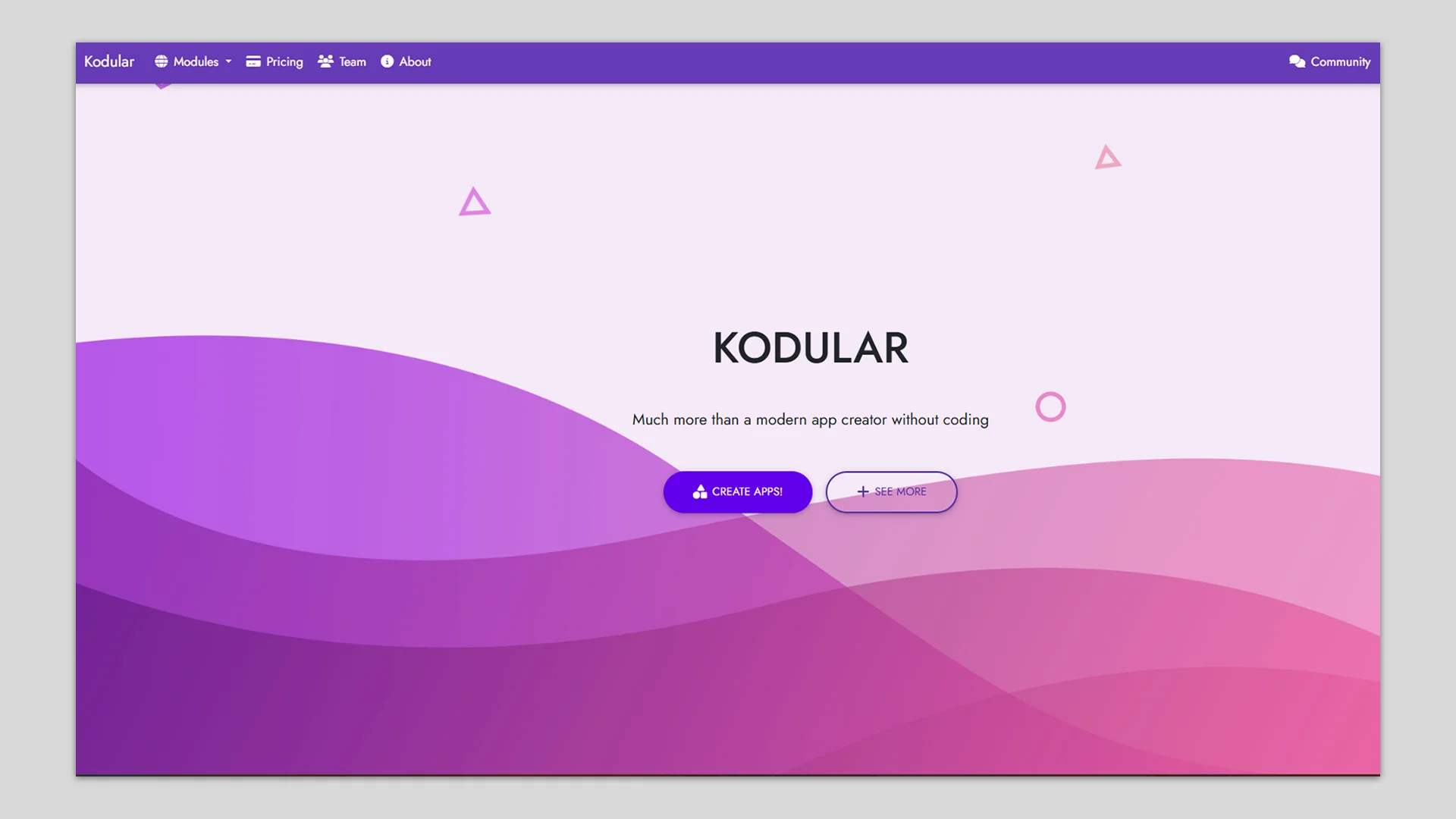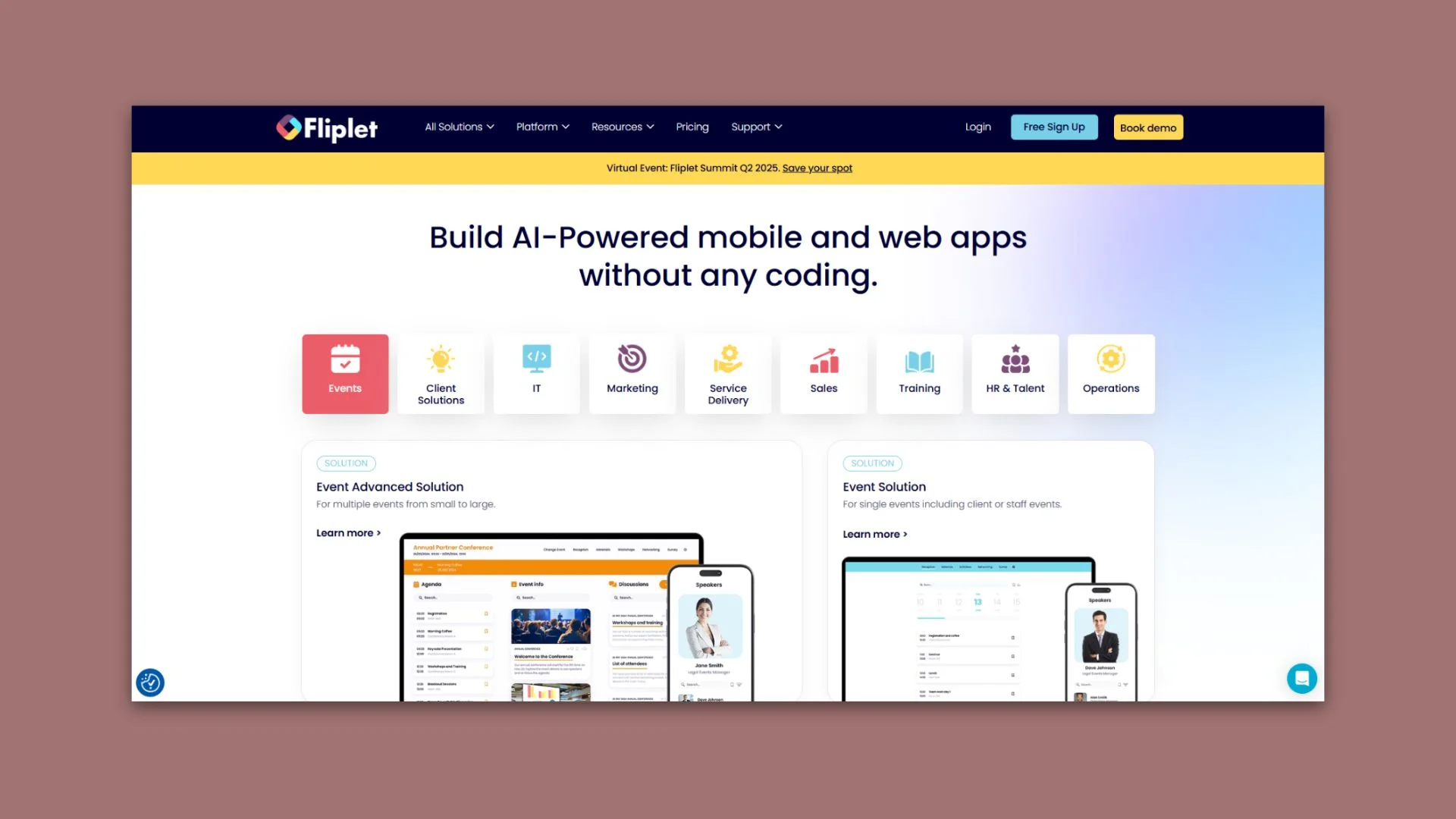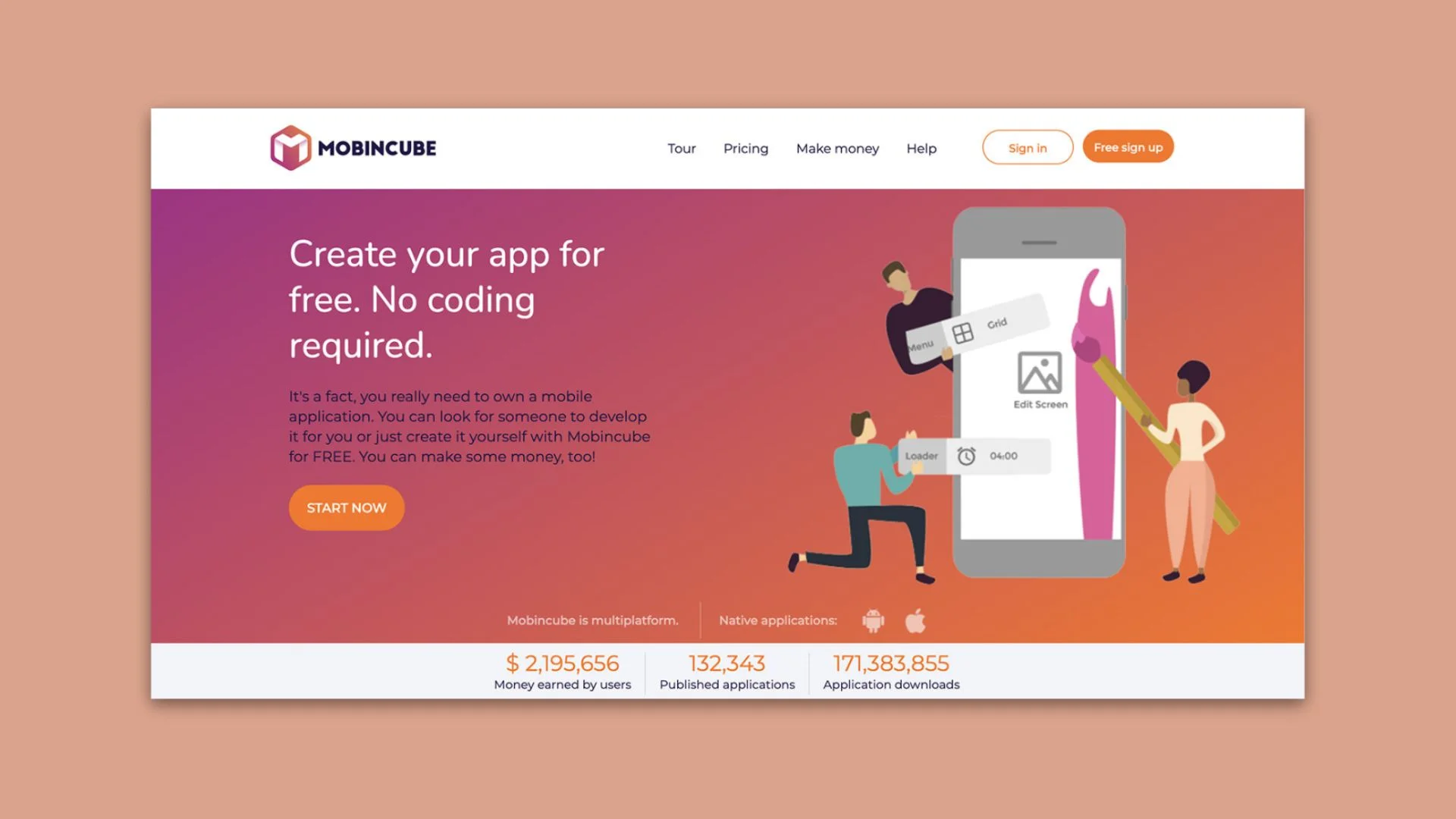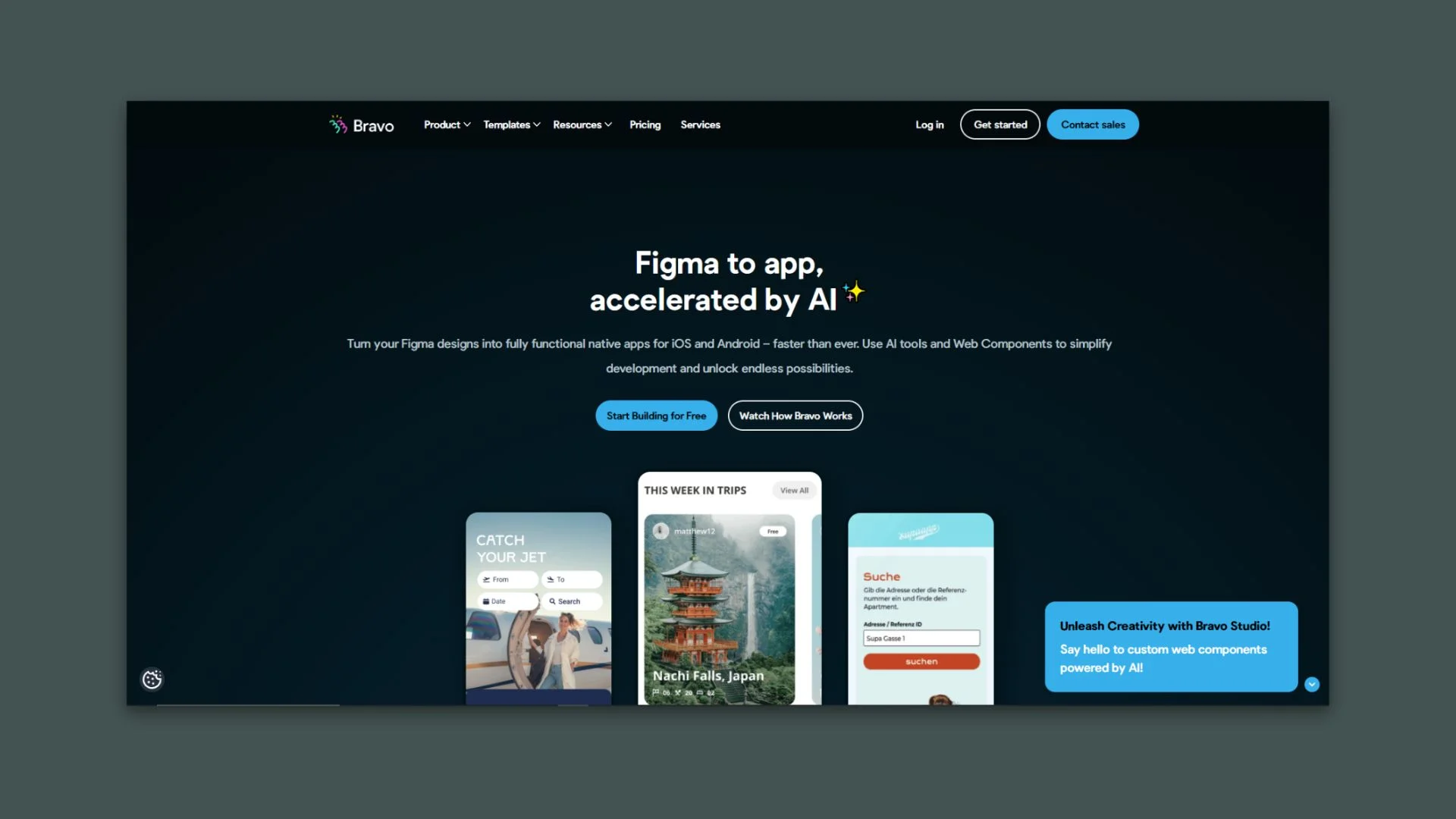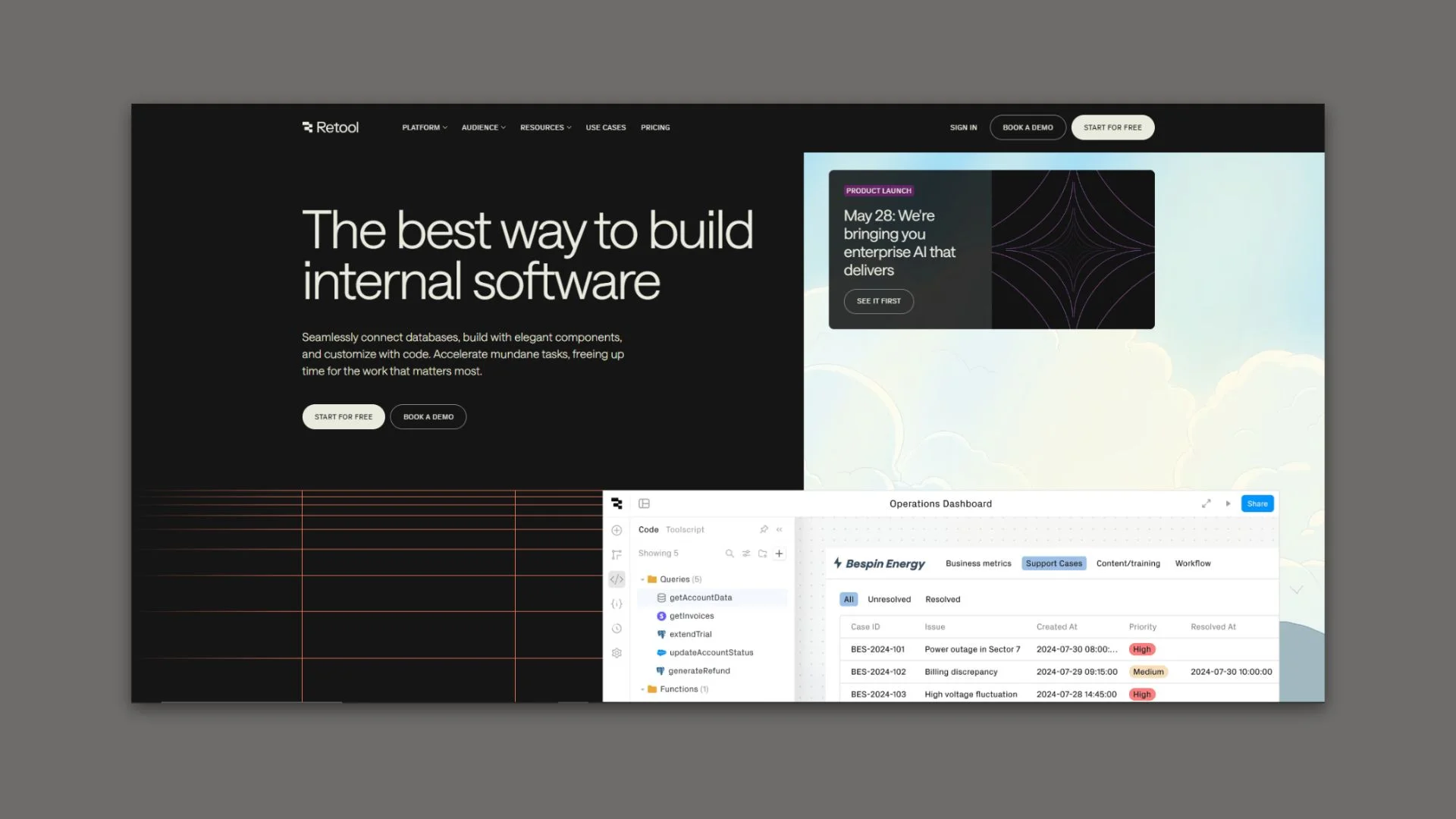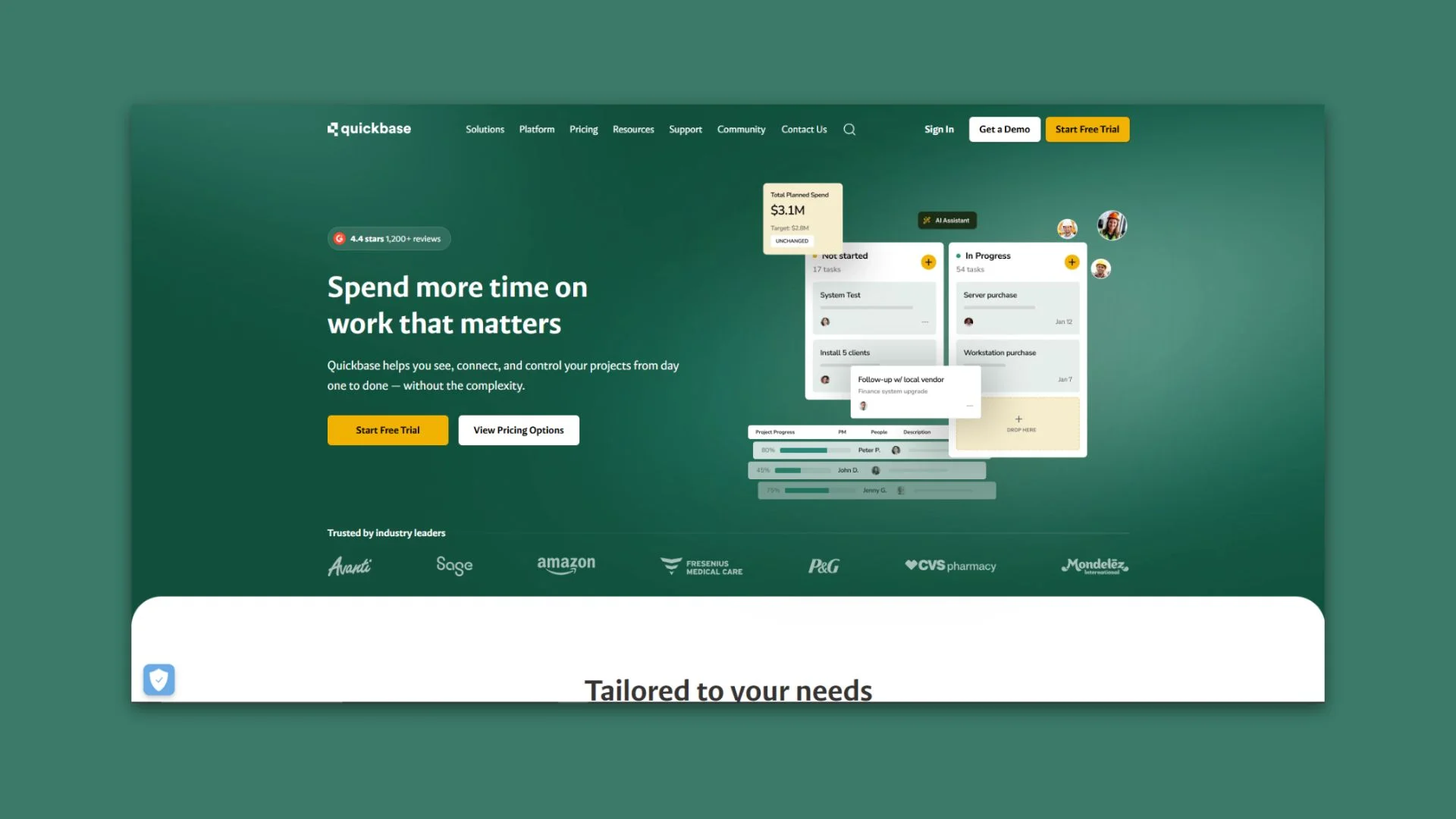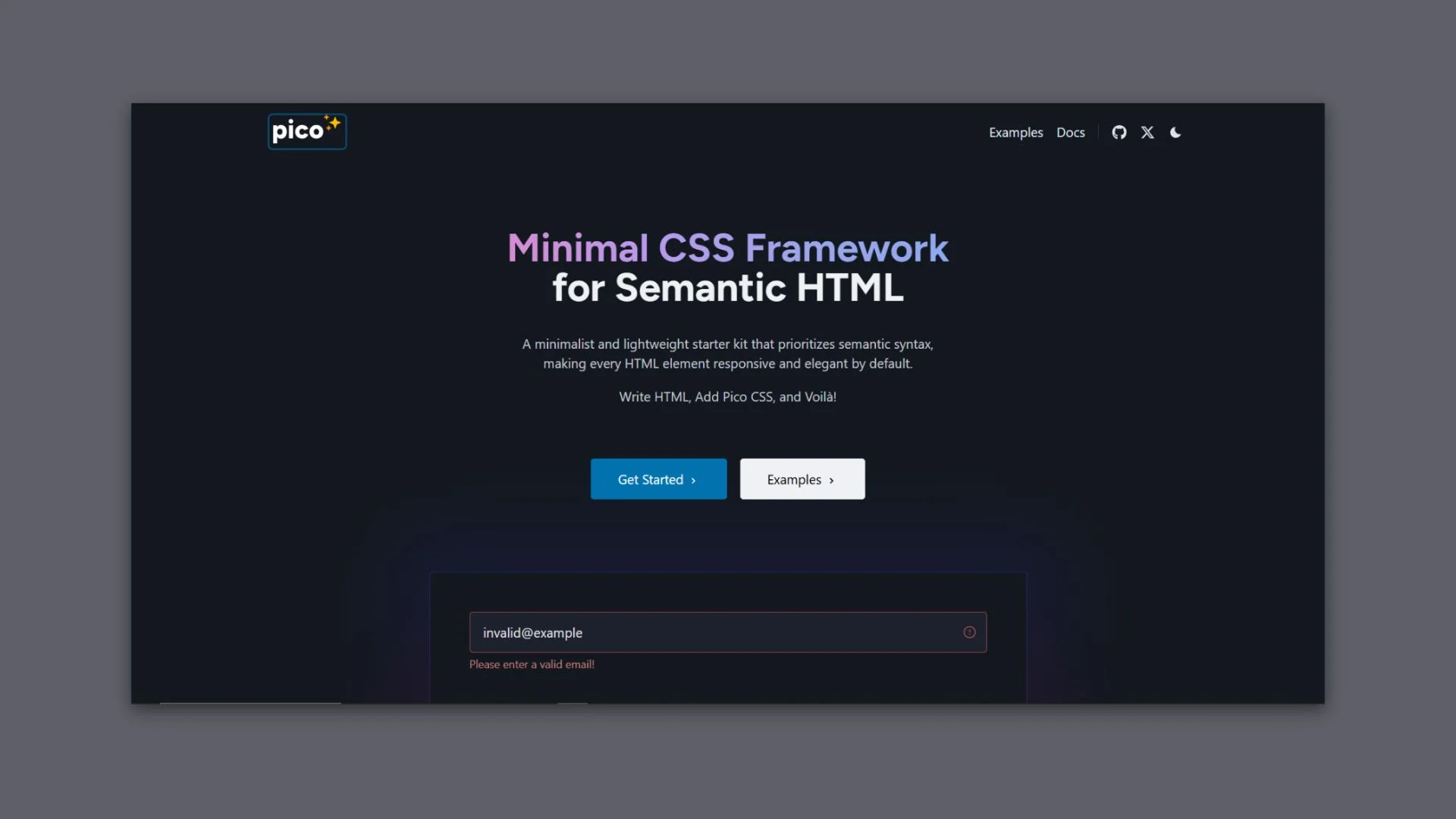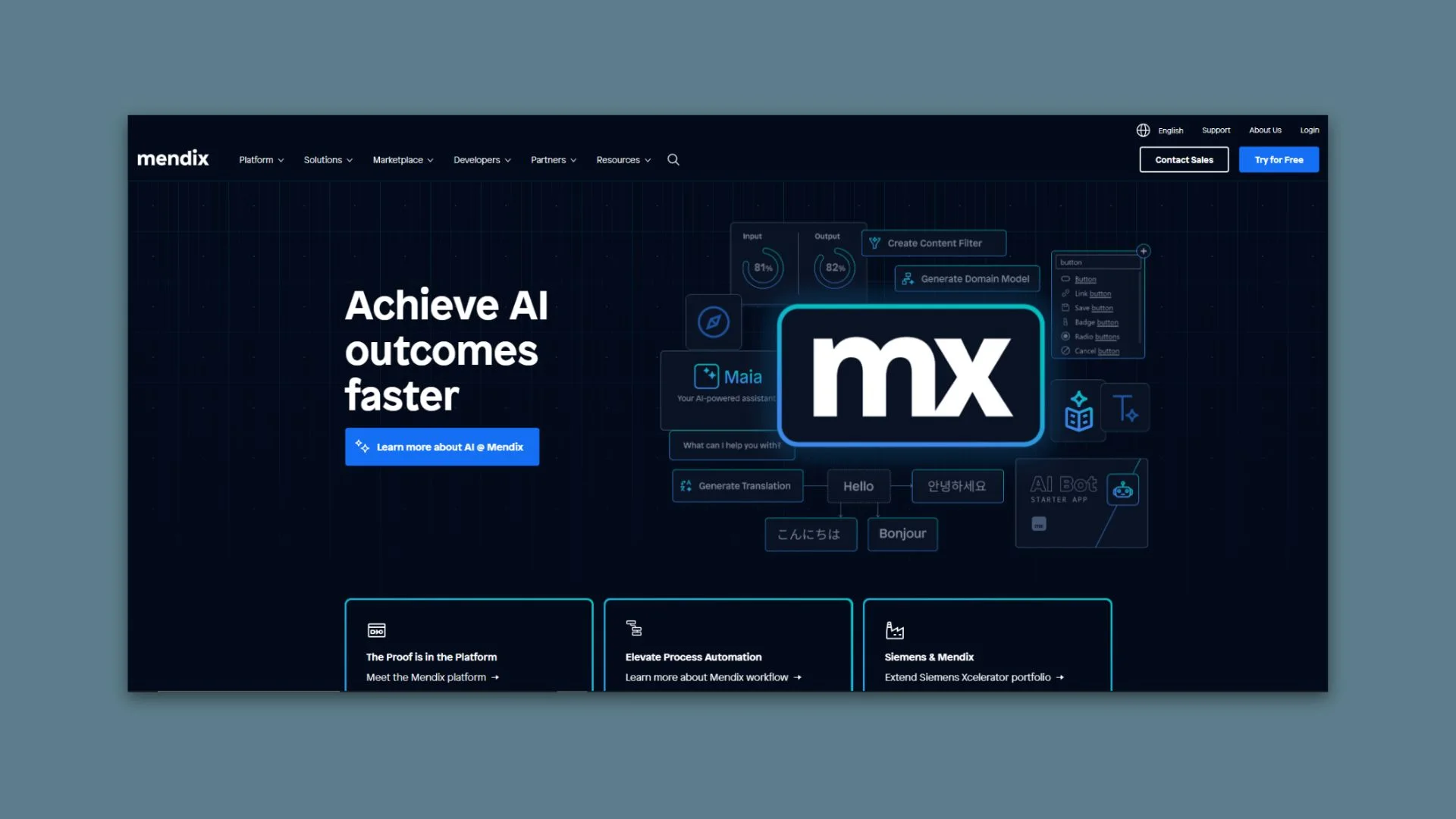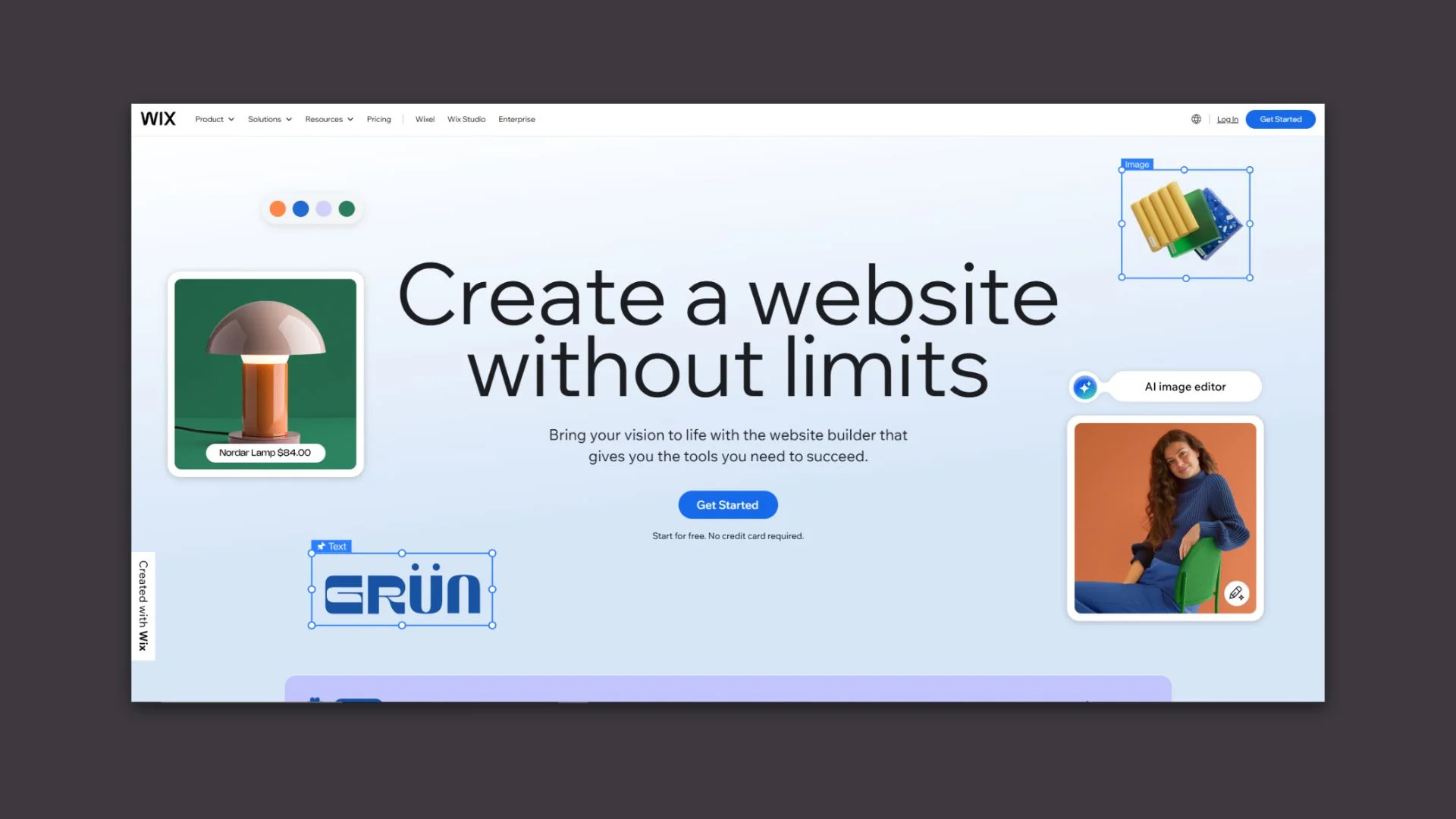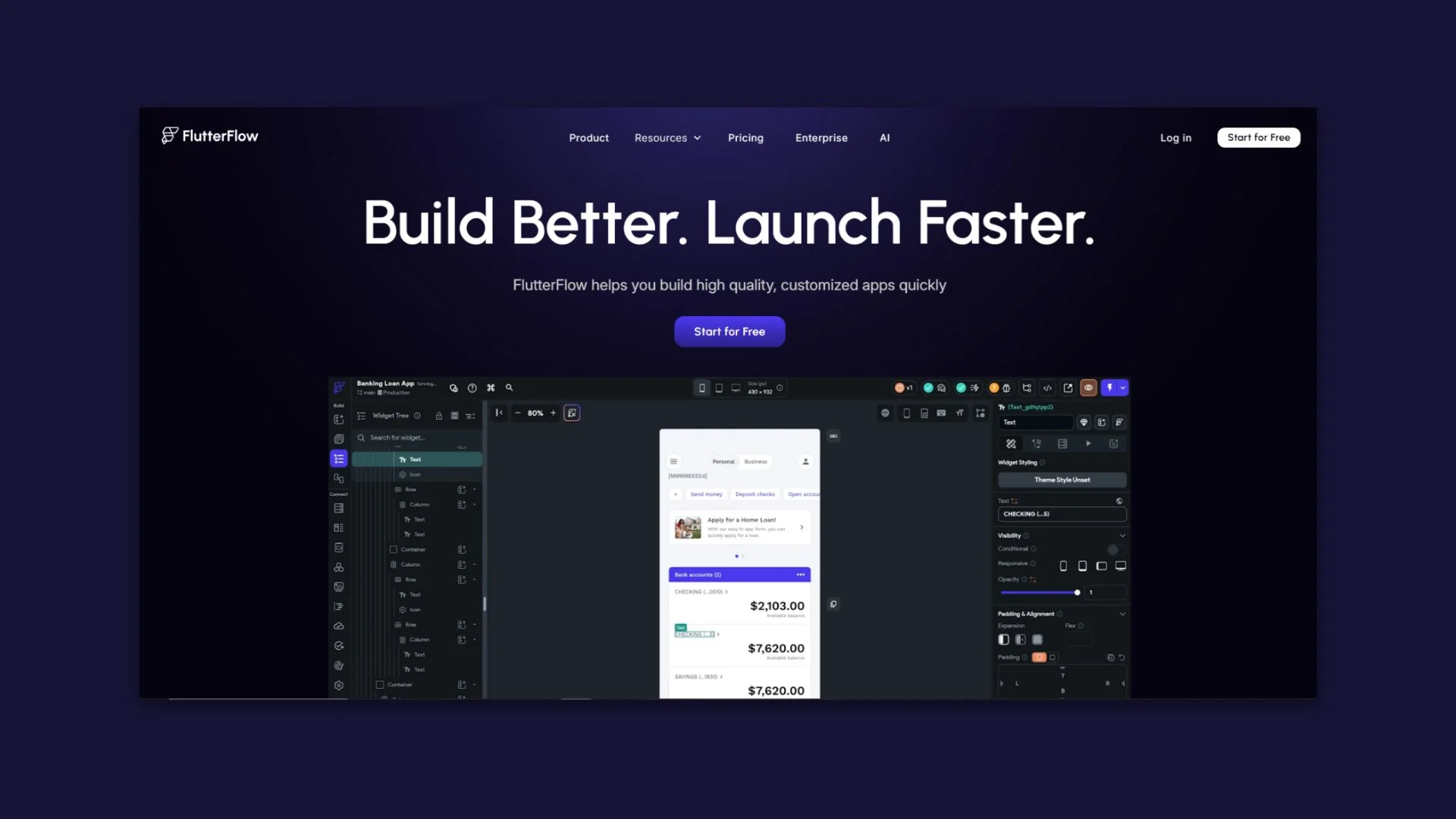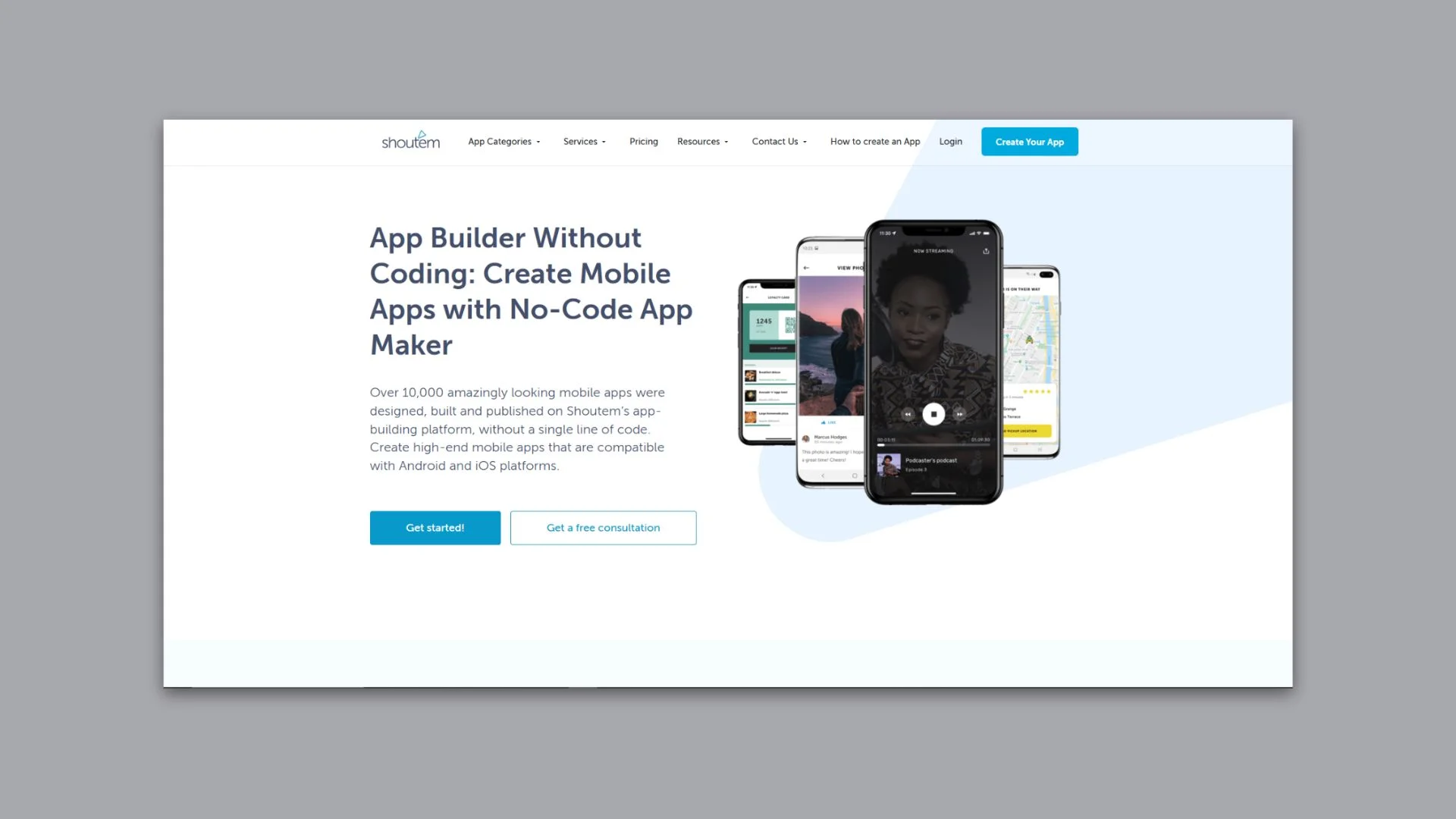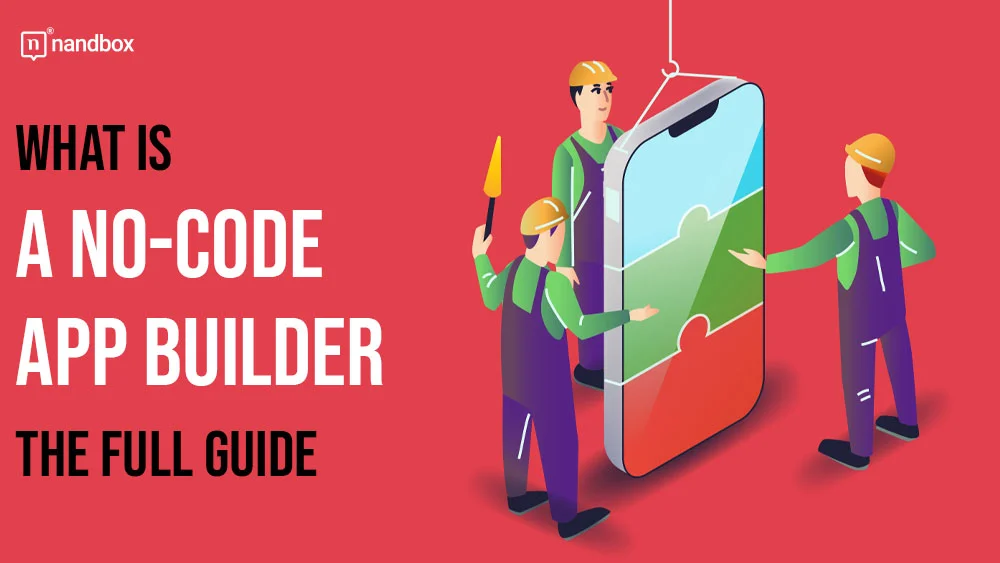Developing an app in a traditional “coding the app from scratch” way is now considered a bit of an old-fashioned technique. In 2025, app development is one aspect that is completely changing. That is, thanks to the no-code and low-code evolution. This movement has been a blessing for all citizen developers who have no idea how to bring their app ideas to life without having to learn any coding or programming. This guide is dedicated to app developers of all ages, expertise, and visions. In this guide, I aim to put the spotlight on the top 20 app builders for 2025.
Uncovering The Top 20 App builders for 2025 In This Comprehensive Guide
1. nandbox: The Number One Native App Builder in The Market
When it comes to no-code app development, nandbox.com stands as the gold standard. Why? Because it’s not just an app builder; as a matter of fact, it’s a full-fledged ecosystem designed for professional-grade, scalable applications. nandbox’s app builder offers you an intuitive drag-and-drop interface that has robust features that you can use to create a seamless app with excellent functionality. With AI knocking on our futuristic doors, nandbox provides you with the latest technology stack that you can leverage its power to your advantage. On top of that, nandbox offers affordable pricing plans, so you can crate your dream native iOS an Android app for less than %100.
- Key Features: Native no-code app builder, AI features, AI app builder, App builder GPT, Scalable, Secure, Third-party integrations, Pre-made templates, Pre-built modules (messenger, e-commerce, booking systems)
- Suited for: Established enterprises, growing businesses and startups, delivery & booking services
- Drag-and-drop Interface: Available
- Platform Support: iOS, Android
2. Softr: Turn Your Data to Fully Functional Applications
Another big app builder from the top 20 app builders for 2025 that is shifting how we develop applications is Softr. Ever heard of a platform that allows you to use your data in order to create an app? Well, congratulations, you have now. Softr is helping businesses and individuals alike through a comprehensive process where they can turn their data into an app. However, while it excels in web apps, Softr isn’t a suitable fit for building native mobile apps. If you’re seeking versatility with a focus on simplicity, Softr offers a brilliant solution to bring your ideas to life effortlessly.
- Key Features: No-code app builder, Pre-made blocks, Database integration (Airtable, Google Sheets, and Notion), Third-party integrations
- Suited for: Startups, small businesses, internal tools & dashboards
- Drag-and-drop Interface: Available
- Platform Support: Web apps, PWAs
3. Bildr: A Highly Customizable Visual Web Development Tool
Bildr stands out for its power-packed features. These features cater to both developers and non-technical users. It’s particularly strong in providing a highly customizable environment. One where you can build complex applications, thanks to its no-code and pro-code flexibility. Bildr’s edge lies in empowering users to integrate JavaScript and API calls in a seamless way. However, while it’s a robust platform, its steep learning curve can be daunting for absolute beginners. If you want to go beyond cookie-cutter templates and unleash your creativity, Bildr is a top choice.
- Key Features: No-code and low-code app builder, Custom code options, API and database integrations, Real-time data updates
- Suited for: SaaS, Web app developers, Product designers and developers
- Drag-and-drop Interface: Available
- Platform Support: PWAs
4. Backendless: An Excellent Scalable App Builder
Backendless excels as a backend-as-a-service (BaaS) platform. it combines visual app development with powerful backend features. This is what I call the ultimate mixture of empowerment. It’s perfect for building dynamic, data-driven apps without worrying about the hassles of server management. For example, a ridesharing startup could use Backendless to develop a robust app with real-time tracking, user authentication, and push notifications. However, the focus on backend services may limit design flexibility compared to other platforms. This little convenience or flexibility issue is one that I believe can be like it never existed for those who prioritize their backend structure.
- Key Features: No-code backend builder, Cloud and self-hosted options, Scalable,Third-party integrations, Geolocation Services, Codeless logic and workflows
- Suited for: Enterprise-level applications, Location-based services
- Drag-and-drop Interface: Available
- Platform Support: iOS, Android, Web apps
5. Firebase: The Best Suite of Tools You’ll Have
Google’s Firebase is the backbone of many successful apps. While it’s not a traditional app builder, Firebase offers backend services. This platform provides you with complete real-time updates and a simple user authentication creation process. This is why creating an app with Firebase increases the likelihood of success. The fact that Firebase integrates with other Google tools like Analytics and AdMob is another positive feature. This makes it one of the top choices for developers who are focused on growth and having better user engagement. If you’re a developer or have access to technical expertise, Firebase is definitely the platform that will benefit you greatly through your app development process.
- Key Features: Backend services, Real-time databases, Third-party integrations, Google tools integration, Authentication, User management, Cloud storage, Hosting
- Suited for: Startups, entrepreneurs, gaming and social apps
- Drag-and-drop Interface: Not available
- Platform Support: iOS, Android, Web apps
6. Builder.ai: Tailoring Your App at Its Best!
Builder.ai is a platform designed to make app development as easy as ordering a plain Margherita pizza. It’s particularly useful for businesses that want a tailor-made app. That is, without having to have their hands inside any guide for coding or technicalities. Builder.ai allows users to choose from various templates and functionalities. These functionalities are then customized and assembled by the platform’s AI-powered system. You wish and Builder.ai will simply make it happen through a simple swish and flick from Hermione’s magic wand. While it’s not as hands-on as other no-code tools, it’s perfect for those who prioritize convenience over control. If you’re looking for a simple, efficient way to get a professional app built, Builder.ai is a strong recommendation.
- Key Features: No-code and low-code app builder, Pre-made templates, AI features, Third-party integrations, Scalable, Secure, Customization tools
- Suited for: Retail businesses, entrepreneurs, small businesses
- Drag-and-drop Interface: Not available
- Platform Support: iOS, Android, PWAs
7. AppSheet: Google’s Ultimate Powerhouse Tool
Google owns AppSheet. Isn’t that enough to prove how good it will be with your app vision? AppSheet is a powerhouse for creating business applications without writing code. It has a standout feature, which is the seamless and reputable integration with Google’s workspace tools. I know that it may sound like an obvious thing but seriously, this integration is one of the most powerful ones I have witnessed. Some buy Google phones to just streamline their work through this integration. Back to AppSheet, this integration is more than beneficial and is considered an excellent choice for enterprises already in the Google ecosystem. So if your goal is to enhance operational efficiency, AppSheet provides the tools you need to succeed.
- Key Features: No-code app builder, Google Workspace tools integration, Data-driven apps, User authentication, Automated workflows, Data visualizations, GPS tracking
- Suited for: Businesses, enterprises, data collection and logistics apps
- Drag-and-drop Interface: Available
- Platform Support: iOS, Android, Web apps
8. Kissflow: Business Process Automation Meets App Building
Kissflow isn’t just an app builder; it’s a comprehensive platform for business process automation. Designed with enterprises in mind, it empowers teams to create apps that streamline workflows. Yes, it is as simple and effective as that. From employee onboarding to customer relationship management, it covers it all. Its visual interface and pre-built templates make it accessible and easy to use. That is, even for those without technical expertise or background. Kissflow’s strength lies in its ability to simplify complex workflows, but it’s not ideal for consumer-facing apps like e-commerce or social platforms. Instead, it’s perfect for internal business use cases.
- Key Features: No-code and low-code app builder, Pre-built templates, Data management, Third-party integrations, Real-time dashboards, Workflow automations
- Suited for: Enterprises, Internal businesses
- Drag-and-drop Interface: Available
- Platform Support: iOS, Android, Web apps
9. Appery.io: The Best Low-Code and No-Code Combination Tool
Appery.io is a versatile app builder. One that combines low-code and no-code capabilities. It’s well-suited for building hybrid mobile apps that require backend services and cloud hosting. Developers often choose Appery.io. That is because it offers great flexibility in integrating APIs and creating customized app logic. Flexibility is Appery.io’s forte. That is why, if it is your priority, go for it. However, Appery.io may not be ideal for absolute beginners due to its complexity. It may need that you understand the technicalities that lie within its folds first before you start using this platform. If you’re looking for a comprehensive and hybrid-suited platform with a balance of simplicity and technical depth, Appery.io can be an excellent choice.
- Key Features: No-code and low-code app builder, Built-in backend services, Custom JavaScript support, Third-party integrations
- Suited for: Startups, entrepreneurs, developers that needs a fast prototyping tool
- Drag-and-drop Interface: Available
- Platform Support: iOS, Android, Web apps
10. Kodular: Perfect for Educational Apps and Beyond
Kodular is a standout app builder that caters especially well to educational projects and learning-focused environments. With its user-friendly interface and block-based coding, even beginners can create fully functional apps. Kodular is a favorite among educators and students, allowing them to build apps for school management, learning games, and interactive study tools without requiring advanced programming skills. Moreover, Kodular’s integration with AdMob also allows creators to monetize their apps. Kodular is simply versatile enough and has the capability to offer you a cost-effective app-building solution. That’s why this app is one of the top 20 app builders for 2025.
- Key Features: No-code app builder, Pre-built components, Monetization options, Custom logics with blocks, Third-party integrations
- Suited for: Educational projects, students and beginners
- Drag-and-drop Interface: Available
- Platform Support: Android
11. Fliplet: Rapid Development for Enterprise Teams
Fliplet excels as an enterprise-grade app builder. One that was designed for teams that need results fast. With Fliplet’s library of pre-designed templates, even non-technical users can create feature-rich apps for internal communication, event management, or even customer engagement. It’s particularly popular among large companies looking to streamline operations or create custom solutions. That is, without further burdening existing systems. If you own a company that has a corporate HR department, you can use Fliplet to build an onboarding app for new employees. This app can be built complete with training modules and company policies. So if you’re an individual or a business that prioritizes efficiency, Fliplet is for you.
- Key Features: Low-code and no-code app builder, Pre-designed templates, API integrations, Offline functionality, Enterprise-grade security
- Suited for: Enterprises and organizations that want to build internal apps
- Drag-and-drop Interface: Available
- Platform Support: iOS, Android, Web apps
12. Mobincube: Affordable and Accessible for Small Businesses
Mobincube is an affordable app builder that balances simplicity and functionality, making it perfect for small businesses and solo entrepreneurs. With its intuitive interface, users can design apps for e-commerce, event management, or even personal portfolios without prior technical expertise. One of Mobincube’s standout features is its ability to build apps that are compatible with both Android and iOS platforms. For example, if you own a small bakery, you can use Mobincube to create an app that showcases your menu. This option will enable customers to place orders and access promotions. Moreover, this platform supports in-app advertisements. This makes it a budget-friendly option for those who want to monetize their apps and gain revenue from them.
- Key Features: No-code app builder, App monetization features, Offline functionality, Custom code support
- Suited for: Small businesses, startups and beginners
- Drag-and-drop Interface: Available
- Platform Support: iOS, Android
13. Bravo Studio: Bridging Design and Functionality
Bravo Studio has a major focus on turning creative designs into functional mobile applications. This app builder syncs directly with design tools like Figma and Adobe XD. This is a tool that allows its users to transform their prototypes into fully operational apps without writing a single line of code. Moreover, as it focuses on the app’s design, it’s becoming ideal for professionals who are looking to maintain creative control over their projects and tasks. The platform also offers advanced features such as API integration and push notifications. This helps it in expanding its utility and broadening its horizons to become something that is more than just those basic apps. While Bravo Studio may not be the best fit for large-scale or complex apps, it’s a powerful tool for those who prioritize aesthetics and seamless design implementation.
- Key Features: No-code app builder, Design-first workflow, API integration, Push notifications, Custom web components,
- Suited for: Designers, creators , startups, and entrepreneurs
- Drag-and-drop Interface: Not Available
- Platform Support: iOS, Android
14. Retool: The Developer’s Choice for Internal Tools
Retool is a tool that is considered a developer-friendly app builder. It is made to be tailored for creating powerful internal tools. Its drag-and-drop interface is augmented by the ability to write codes that are custom. This is something that engineers and IT teams favor deeply in Retool. Furthermore, Retool is best suited for businesses that are looking to streamline their workflows, manage databases, and build admin dashboards. For example, if you own a logistics company, you could use Retool to create your own inventory management system. One that integrates with their existing databases and APIs. This tool’s strength lies in its flexibility. This allows developers to combine pre-built components with custom scripts. This tool is considered no-code yet needs you to understand some technical basics to be able to fully use it and unlock its potential.
- Key Features: API Integrations, Workflow automation, Custom themes, Enterprise-grade security, Pre-built components and templates
- Suited for: Developers, engineers, and IT teams
- Drag-and-drop Interface: Available
- Platform Support: iOS, Android, Web apps
15. Quickbase AI: Intelligent Solutions for Business Workflows
Moving on to number 15 on our list, which is Quickbase AI. The catchy sentence is as follows: “A simpler way to manage complex tasks.” They didn’t lie. Quickbase AI can save you hours and a lot more effort through their artificial intelligence integration that they depend on to get your needs automated. Quickbase AI combines two powerful development concepts. These concepts are no-code app development and artificial intelligence. This combination is helping in revolutionizing how businesses handle workflows. Quickbase AI is a tool that is designed for enterprises; it empowers users to create intelligent apps that automate their processes, manage their data, and enhance their decision-making. The artificially intelligent capabilities that it has make it stand out from the app builder crowd.
- Key Features: No-code app builder, AI features, Collaborative features, Pre-built templates, API Integrations, Workflow automation
- Suited for: Enterprises and data analysts
- Drag-and-drop Interface: Available
- Platform Support: Web apps, Mobile container app
16. Pico: Lightweight and Fast for Micro-Apps
Pico is an app builder designed for creating lightweight, micro-applications quickly and efficiently. Its minimalistic approach makes it ideal for developers looking to build focused apps with specific functionalities, such as calculators, timers, or simple data collection tools. Pico’s peak and top feature that distinguishes it from other app builders is that it has a GPT integration. One that allows you to create GPT-powered web apps in no time and in a comprehensive way. So how does it work? Simply put, you write your app needs and GPT-4 starts implementing your needs and shaping them into a fully functional and minimally pleasing app.
- Key Features: No-code app builder, AI app builder, Scalable, GPT integration
- Suited for: Entrepreneurs, consultants, and small businesses
- Drag-and-drop Interface: Not available
- Platform Support: Web apps
17. Mendix: Enterprise-Level Solutions with Low-Code Power
Mendix leads the low-code development arena. That is, it offers enterprise-grade solutions for businesses that aim to achieve better scalability. Its platform supports everything from simple apps to complex ones. Also, it supports multi-user systems. This makes it a versatile choice for large organizations. Mendix’s low-code interface is complemented by extensive customization options. These options provide developers with the flexibility to create tailored solutions. Moreover, it allows teams to work together on projects in real time. With built-in DevOps capabilities and robust security features, it’s designed to meet the stringent demands of enterprise IT. While Mendix’s advanced features come with a higher price tag, the investment often pays off in terms of efficiency and scalability.
- Key Features: Low-code app builder, AI assistant, Scalable, Multi-user system, Offline functionality
- Suited for: Enterprises and technical teams
- Drag-and-drop Interface: Available
- Platform Support: iOS, Android, PWAs and web apps
18. Wix: Bridging Websites and Apps with Ease
I know that Wix being on the list of app builders may sound weird. We all know that Wix is a pioneer in website development. However, let me introduce you to the new face that Wix is now showing us. Wix is now becoming a humble app developer. And yes, it is completely no-code. Its drag-and-drop interface allows users to design and customize their apps without requiring any technical knowledge. Let me just highlight something important that is worth noting. This platform shines for businesses already using Wix for their websites, enabling seamless app creation to complement their online presence. Additionally, Wix’s integration with its website tools ensures consistent branding and functionality, while its app market adds features like loyalty programs and push notifications.
- Key Features: No-code app builder, AI features, Custom branding, Integration between Wix website and mobile app
- Suited for: Small to medium-sized businesses and e-commerce platforms
- Drag-and-drop Interface: Available
- Platform Support: iOS, Android
19. FlutterFlow: The Developer’s Best No-Code Ally
FlutterFlow is a standout in the no-code ecosystem. That is, especially for developers who want to build visually stunning, cross-platform applications. Built on Google’s Flutter framework, it allows users to create apps for iOS and Android with incredible ease. FlutterFlow strikes a balance between simplicity and advanced functionality. This makes it perfect for startups and businesses looking to launch polished, feature-rich apps. In other words, ready-made apps with their own vision and touch. Imagine building a fitness tracking app complete with interactive charts, real-time user data, and sleek animation. All without any need for writing a single line of code.
- Key Features: No-code app builder, Pre-built widgets, Custom code support, API Integrations, Real-time collaboration tools
- Suited for: Startups and entrepreneurs
- Drag-and-drop Interface: Available
- Platform Support: iOS, Android
20. Shoutem: For Communities and More!
Shoutem specializes in creating mobile apps for community-focused platforms like events, clubs, and local businesses. This specification makes it stand out from the app builder crowd. It targets specific people who have their app idea planned and ready for execution. One of Shoutem’s strengths is its focus on user engagement. Features like push notifications, loyalty programs, and customizable newsfeeds ensure that users stay connected. However, Shoutem’s pricing can be steep for small businesses, and its design options are somewhat limited compared to competitors. Still, for niche markets focused on community building, Shoutem offers a reliable and more specialized solution.
- Key Features: No-code app builder, Pre-made templates, Push notifications , Loyalty programs, Social media integrations
- Suited for: Small to medium businesses and community-focused platforms
- Drag-and-drop Interface: Available
- Platform Support: iOS, Android
Wrapping It Up!
Now that you’re here after uncovering with me the top 20 app builders for 2025, allow me to applaud your persistence and love of reading. By this far, you have explored the top 20 app builders of 2025 and their usages, features, pros, and cons. This guide aims to simply help you choose the best app builder for your app development journey. Sign up for nandbox now and build native iOS and Android apps without coding!

